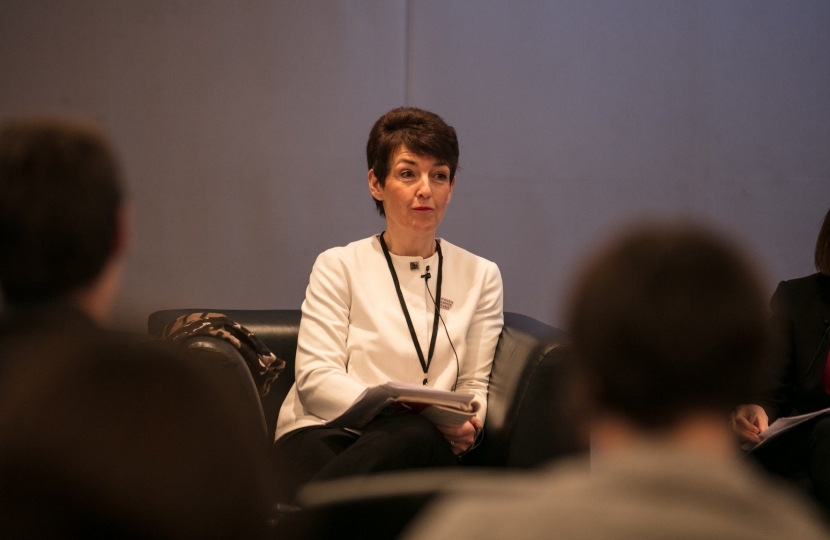
“Patient data is capable of improving patient outcomes”. This was the point I made passionately at this year’s BioData World Congress, held last week, at the Wellcome Genome Campus in Cambridge. Bringing together almost seventy renowned speakers from all around the world, the congress was an exciting forum to discuss the opportunities, and the challenges, of driving forward the advantages of biodata.
Biodata, and more broadly the life sciences agenda, are not commonplace themes when we discuss public health or our NHS. However, they do have the potential to help alleviate some of the pressures within and help streamline our healthcare system, without replacing crucial contact between doctors and patients.
This week’s announcement to pilot 24-hour smartphone GP appointments for specific cases, is building on these very ideas. Although a specific case and being carefully piloted in Greater London, it presents the NHS and patients with the opportunity to benefit from technology, currently used to ease banking or shopping, to help improve healthcare.
It is both bemusing and frustrating that the digitalisation and safe, secure sharing of patient records does not already take place more widely within our NHS. A poll of audiences often shows the assumption is that it already happens. Yet it is the case that our patient records are neither fully nor automatically digitalised, nor guarantee the necessary digital safety and security to be stored and shared appropriately throughout the healthcare system.
That is why I have been working hard to develop an important Bill which will, in giving statutory powers to an independent body – a National Data Guardian, to serve primarily the interest of patients, and help to safely develop an opt-out system for digital health records.
The benefits of safely developing digital health records are numerous. Most strikingly, is that they will be delivering what patients and the public assume and already hope happens in terms of the storage and use of their records. Moreover, digital records can boost the patient experience and facilitate treatments, minimising the need to repeat one’s medical history and allowing patients and clinicians to focus on what matters - patient care.
However, a further benefit is the support digital records give to medical research, and the development and understanding of treatments and outcomes. For instance, the study of genomics and human DNA have a huge potential to breakthrough our understanding of diseases and how the body responds as well as, in the long run, developing improved medicines and treatment plans.
Genomics England have already collected 1,000 genome samples of individuals and amongst them found 60% of people had something in their genome which doctors can already help with. This has had large scale consequences to help drive forward medical research. However, this can only be achieved with evidence and material which our excellent research sectors can use to further benefit patients with more attenuated, personalised medicines. This is why safe de-personalised digital records are essential.
What is particularly telling is the role our region has to play in this new frontier. The Biodata World congress, held in Cambridge at the Wellcome Genome Campus, demonstrates how the East is fast developing itself as a capital for research, development and innovation. Cambridge University, a hub for skills and research and with its connectivity to Oxford and the rest of the country, is perfectly primed to attract investment into work already ongoing.
However, the rest of our region also benefits, for example Stevenage and Suffolk are, more generally, drawing attention in the life sciences; in gene therapy and agri-tech respectively. The potential of biodata and the life sciences to benefit public health, as well as our science, research, development and business sectors is far reaching.
However, such uses of biodata still remain largely adrift from patients and the public more widely - tending to be used, in the research of rarer diseases such as cystic fibrosis and cancers. It is not surprising that some may feel overwhelmed and find it difficult to imagine the positive outcomes which could come in time.
My Bill, and the BioData congress aim to discuss and provide solutions as to how we safely and securely deliver digital health records for the understanding and support of patients.
Innovative ideas in our science and technology sector have got us to this point and now, by exploring all the ways in which we can engage with patients, whether through digital platforms, or people’s own health experiences, we can continue to deliver a working programme for a secure digital health future.
Published in the East Anglian Daily Times